Our Network
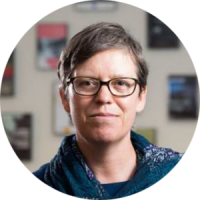
Sahra Gibbon
Co-ordinator
University College London
UK

Catherine Borra
Assistant Co-ordinator
University College London
UK

Taylor Riley
Assistant Co-ordinator University College London
UK
Taylor Riley is a Postdoctoral Research Fellow in the Department of Anthropology at University College London. She is working as a part of a team under PI Sahra Gibbon on the Biosocial Lives of Birth Cohorts Project funded by the Wellcome Trust. She has a PhD in Social Anthropology from Bayreuth International Graduate School of African Studies (University of Bayreuth, 2018). Her work has focused on sexualities and knowledge in South Africa from a queer anthropological perspective. Her book Queer Word- and World-Making in South Africa: Dignified Sounds was published in 2021 (Routledge). She has taught a range of Gender and Sexuality Studies and Anthropology courses and is interested in research and teaching on histories and cultures of biomedicine, queer and trans bodies and life courses, and feminist science and technology studies.
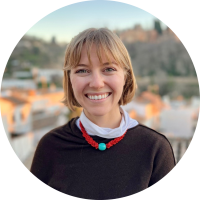
Sidonie Roque
Assistant Co-ordinator University College London
UK
Sidonie Roque is a PhD candidate at UCL and delves into the intricate connections between adverse childhood experiences (ACEs) and cardiovascular health. Drawing upon data from the 1946 National Survey of Health and Development and the Avon Longitudinal Study of Parents and Children, her research aims to unravel the enduring impact of ACEs on the autonomic nervous system across the lifespan. Employing rigorous methodologies, including longitudinal trajectories and life course modelling, Sidonie strives to unearth invaluable insights crucial for targeted intervention strategies and policy formulation. Before embarking on her doctoral journey, she made significant contributions within the Veterans Affairs Healthcare System in the USA, focusing on substance use and suicide prevention implementation research alongside shaping systemwide policies. Sidonie’s research receives support from the Soc-B Centre for Doctoral Training in Biosocial Research (ESRC and BBSRC). She is committed to sharing knowledge and fostering collaborative endeavours in this critical field.

Evangeline Tabor
Assistant Co-ordinator
University College London
UK
Evangeline Tabor is a PhD candidate with a background in medical anthropology. They specialise in LGBTQ+ health disparities and inequities across the lifecourse and is currently pursing a PhD at University College London through the Soc-B CDT (ESRC/BBSRC). Their current interests include the measurement of sexual orientation in UK longitudinal cohort studies, and chronic physical health disparities in sexual minority populations.

Megan Arnot
University College London (UCL)
UK

Princess Banda
University of Oxford
UK
Princess Banda is a DPhil Anthropology student at the University of Oxford. Her research interests lie within socio-medical anthropology, focusing on critical anthropologies of race and gendered racism in the UK. In this, she interrogates and explores a range of themes; from biopolitics, embodiment, biopsychosociality, and health justice to intergenerational trauma, slow violence, life course theories, and theory as praxis. Her thesis integrates these interests, situating them within maternal health. In sum, it investigates the ‘Black maternal health crisis’; it seeks to study and contribute knowledge of- and language for- the systemic gendered anti-Blackness that Black women have cited as the most significant reason for their increased maternal mortality and morbidity risks. It builds upon the idea that misogynoir is both a socio-structural risk factor and a biomedical trigger for their poorer health outcomes and healthcare-related trauma, and will utilise qualitative, narrative-based, ‘decolonised’ methods through an intergenerational ethnography.

Dominique P. Béhague
Vanderbilt University, USA
King’s College London, UK
Dominique P. Béhague is Associate Professor of Medicine, Health and Society and affiliated faculty in the Anthropology Department and at the Center for Latin American Studies at Vanderbilt University. Trained as social anthropologist trained at Bryn Mawr College in the US and McGill University in Canada, Dominique specialises in the ethnography of Brazil and the anthropology of health and biomedicine. Her long-term ethnographic research in Southern Brazil investigates the concurrent emergence of new forms of community-based psychiatric practice and different typologies of adolescent psychopathology and developmental transformation. A collaborative project with the Department of Social Medicine at the Federal University of Pelotas, this research followed the lives of a core group of 90 young people, participants of an ongoing 1982 Pelotas birth cohort study, from their 15thto their 25th birthdays (1997-2007). She is currently completing a book manuscript based on this research entitled Troubled Teens: Psychiatry and the Shaping of Adolescence in the Wake of Brazil’s New Democracy. A second more recent project funded by the ESRC and conducted together with Katerini Storeng, centers on the politics of evidence-based medicine, particularly as it relates to expertise, advocacy and policy in the global health. Publications from this research have influenced policy-making at key institutions such as the World Health Organization, the Wellcome Trust, and the Population Council. Currently, Dominique is developing a new project to explore the intersection of psychiatry, politics and global knowledge-flows together with colleagues at Vanderbilt, the LSHTM, and King’s College London, where she also holds a yearly summer appointment as Senior Lecturer.

Amber Benezra
Stevens Institute of Technology
USA
Amber Benezra is a sociocultural anthropologist researching how studies of the human microbiome intersect with biomedical ethics, public health/technological infrastructures, and care. In partnership with human microbial ecologists, she is developing an “anthropology of microbes” to address global health problems across disciplines. Her forthcoming book from University of Minnesota Press, Anthrobiota: Coevolving an Anthropology of Microbes, is the first ethnography of the microbiome. Based on fieldwork at the Center for Genome Sciences and Systems Biology at Washington University, and in Dhaka, Bangladesh, the book explores how the study of human microbiota opens up new ontological terrain for social scientists. An anthropology of microbes operationalizes ethnographic knowledge, asking us to be ethnographers of and for microbiome research, facing the corresponding compromises and uncertainties, challenges and failures. What would it mean for anthropology to act with science?
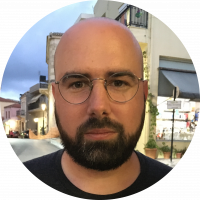
Patrick Bieler
Humboldt-Universität zu Berlin
Germany
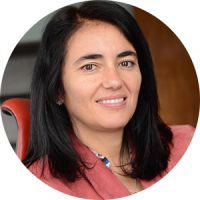
Arachu Castro
Tulane School of Public Health and Tropical Medicine, USA
Arachu Castro, Ph.D., M.P.H., is Samuel Z. Stone Chair of Public Health in Latin America and Director of the Collaborative Group for Health Equity in Latin America at Tulane School of Public Health and Tropical Medicine. Her major interests are how social inequalities are embodied as differential risk for pathologies common among the poor and how health policies may alter the course of epidemic disease and other pathologies afflicting populations living in poverty. Most of her current research is at the intersection of medical anthropology and epidemiology and takes place in Cuba and the Dominican Republic, where she directs a birth cohort study. She received a Guggenheim Fellowship in Medicine and Health for her work throughout Latin America and the Caribbean on women and HIV. Before joining Tulane in 2013, she was Associate Professor of Global Health and Social Medicine at Harvard Medical School. She is the President of the Society for Medical Anthropology.

Faith Cole
University of California
USA

Resto Cruz
University of Edinburgh
UK
Resto Cruz is Lecturer in Social Anthropology at the University of Edinburgh, where he also completed his PhD in 2017. Originally a specialist on kinship, personhood, social mobility, and Southeast Asia, his interests now also include Great Britain, birth cohort studies and life course epidemiology, and archives and data. For his PhD, he examined how kinship ties (especially parent-child relations and ties of siblingship) enabled upward social mobility in post-1945 Philippines, but were transformed by the very processes that they engendered. From June 2018 to September 2019, he was Research Associate at the University of Manchester, where he worked on the ‘Transitions and Mobilities‘ project, an interdisciplinary study of postwar girlhood and youth transitions in Britain and their implications for later life. As part of this study, he was Visiting Researcher at the MRC Unit for Lifelong Health and Ageing at the Institute of Cardiovacular Science, UCL. As an Honorary Research Associate in Sociology at the University of Manchester, he continues to collaborate with colleagues there and at UCL.

Emily Emmott
University College London
UK
Dr Emily Emmott is a Senior Teaching Fellow in Biological Anthropology at UCL Anthropology. She is a mixed-method researcher with interests in complementing advanced quantitative methods with in-depth qualitative investigations. Her research expertise surround extended and institutional childrearing in developed populations, and how different aspects of the childrearing system influences children and young people’s developmental outcomes. Humans are comparatively unusual in the way we raise offspring, having evolved a “cooperative childrearing system” where children are raised collectively by many caregivers. In her research, Dr Emmott investigates the nature and consequences of such collective childrearing in low-fertility populations with a focus on non-maternal caregiving. She is currently leading/involved in projects on maternal social support and adolescent sociality in the UK and Japan.

Sílvia Fraga
Instituto de Saúde Pública da Universidade do Porto (ISPUP), Portugal
Sílvia Fraga is a researcher member and the coordinator of the Social Epidemiology Group in the Epidemiology Research Unit, hosted at Instituto de Saúde Pública da Universidade do Porto (ISPUP). She has a degree in Social Work, and holds a Master and a PhD in Public Health from University of Porto, Portugal. Her research in the field of epidemiology has been focused on social determinants of health, violence assessment in population studies, methodological and ethical aspects of violence research. Recently, the focus of her research is on the “biology of social adversity”, with her main interests being the mechanisms and processes that link social conditions and experiences to the production of health inequalities across the life course. She is a research member on national and international research projects, and is also part of international research consortia aiming to study the biological pathways associated with health disparities in ageing and to tackle life course health trajectories. Currently, is the Principal Investigator in a research project, that using data from a birth cohort, aims to investigate if social differences in biological markers exist already since early ages, namely among children exposed to poverty, household dysfunction and violence.

Angela Filipe
McGill University
Canada
Angela Marques Filipe is a senior Postdoctoral Research Associate at the Department of Sociology, McGill University, where she is a member of the International Research Infrastructure on Social Inequalities in Health and, externally, of the Department of Anthropology at Université Laval. She is a social scientist working at the intersection of science and technology studies, medical anthropology and empirical ethics. Funded by British, Canadian, and European agencies, her research has focused, to date, on (i) the global histories and social dimensions of psychiatric diagnosis, child mental health, and the developmental sciences and on (ii) the production of knowledge and valuation practices in contemporary healthcare and medical research. She is also co-editor of Global Perspectives on ADHD (JHUP) and scientific editor for the journal Transcultural Psychiatry. As a coinvestigator of the CIHR project “Situating Suicide Risk” and a member of the Wellcome Trust Biosocial Birth Cohort Research (BCCR) network, her new program of work explores how notions of early adversity, developmental risk, and social resilience are construed in neuroepigenetic and biosocial research and how these might translate into new forms of measurement and intervention that indelibly shape everyday life.
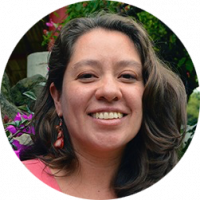
Jimena Fritz
National Institute of Public Health (INSP)
Mexico
Dr. Jimena Fritz (MD, MSc, ScD) is a researcher at the National Institute of Public Health (INSP) in Mexico where she has coordinated several projects in maternal and perinatal health since 2010. She was president of the Association of Students of the School of Public Health of Mexico in 2009 and has participated in academic exchanges at Emory University, Atlanta, University of California at San Francisco (UCSF), and the University of North Carolina at Chapel Hill, USA for her thesis project on Impact Evaluation.

Ana Goncalves Soares
University of Bristol
UK
Dr Ana Goncalves Soares is a Senior Research Associate in Epidemiology at the University of Bristol, UK. Her research explores the impact of adverse early-life exposures on life course cardiometabolic and mental health outcomes. She is part of LongITools, a European research project studying the interactions between the environment (i.e. air pollution, noise and built environment), lifestyle and health in determining the risks of chronic cardiovascular and metabolic diseases across the life course. Her work also explores the influence of adverse childhood experiences, such as childhood maltreatment, on later cardiometabolic health outcomes.
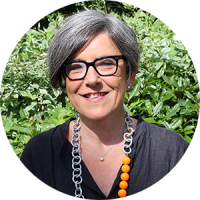
Nina Hallowell
Nuffield Department of Population Health at the University of Oxford, UK
Nina Hallowell is an Associate Professor in the Wellcome Centre for Ethics and Humanities, Nuffield Department of Population Health at the University of Oxford. As a medical sociologist she has long standing interests in genomics, bioethics and society including most recently the ethical issues arising from the use of big data sets in health research. She also works with METADAC (managing ethico-social technical and administrative issues in data access) the data access committee for longitudinal cohort studies in the UK. She is particularly interested in the views and experiences of individuals involved in research; researchers and research participants. A recurring theme in her research is the categorisation of clinical and research activities and associated ethical obligations.

Erica Jansen
University of Michigan
USA

Robbin Jeffries
California Polytechnic State University
USA
Robbin Jeffries Hein has a Ph.D. in Sociology from the University of California, Los Angeles. She studies the intersections of science, medicine and technology, sociology, and feminist theory. She specializes in research on the environmental and reproductive politics of health, developmental origins of disease, and environmental epigenetics. She is a member of the Behavioural Epigenetics in Children study and the BCCR network. Her current work focuses on the social and political implications of placenta epigenetics as well as early life stress, trauma, and adversity for women and children’s health.
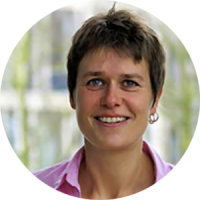
Yvonne Kelly
University College London
UK
Yvonne Kelly is a professor of Lifecourse Epidemiology at the Department of Epidemiology and Public Health, UCL. She is Director of the ESRC funded International Centre for Lifecourse Studies (ICLS) at UCL where she leads work on health and development during childhood and adolescence. Her research makes use of longitudinal datasets including the Millennium Cohort Study, the UK Household Longitudinal Study, the 1958 and 1970 Birth Cohort Studies. Of particular interest are: the causes and consequences of social and ethnic inequalities; the ways in which familial and broader social contextual influences combine to shape health and development; the uptake and retention of health related behaviours during late childhood and adolescence; and the links between early life exposures e.g. drinking and smoking in pregnancy, birthweight and infant feeding and later health and development.

Michelle Kelly-Irving
Inserm Unit of Epidemiology and Public Health
France
Michelle Kelly-Irving is a tenured Inserm researcher (Inserm Unit of Epidemiology and Public Health), France in the field of life course epidemiology. The focus of her research is on the mechanisms and processes involved in the production of health inequalities across the life course. She has developed a program of research examining how early life social and psychosocial mechanisms become biologically embodied, leading to socially patterned health outcomes. She is interested in how social and psychosocial processes are measured and can be used in relation to biomarkers and measures of physiological systems using longitudinal data.

Andrew Kim
Northwestern University, USA
University of the Witwatersrand, South Africa
Andrew Wooyoung Kim is a PhD candidate in biological anthropology at Northwestern University, a Fogarty Global Health Fellow at the Harvard T.H. Chan School of Public Health, and Honorary Associate Researcher at the University of the Witwatersrand. His research integrates biological, epidemiological, and anthropological approaches to understand how social oppression becomes embodied and produces health inequities in historically marginalized communities. His dissertation examines the perceptions of trauma and mental illness in post-apartheid South Africa and traces the biosocial mechanisms underlining the intergenerational mental health effects of violence from apartheid. This research is currently supported by the National Institutes of Health, National Science Foundation, Social Science Research Council, and the Wenner-Gren Foundation.

Rebecca Lacey
University College London (UCL)
UK
Rebecca is a Lecturer in Quantitative Methods and Lifecourse Epidemiology. She currently leads an ESRC grant on early life adversities and mental health over the life course using large population cohorts (Millennium Cohort Study, 1958 British birth cohort and the Avon Longitudinal Study of Parents and Children). The focus of this grant is on how early life adversities cluster and how we measure ACEs in population studies. She is also a Co-Investigator on a Nuffield Foundation funded project looking at long-term outcomes of looked after children in the ONS Longitudinal Study and PI on a follow-up project looking at the living arrangements of children in the Northern Ireland and Scottish Longitudinal Studies.

Janelle Lamoreux
University of Arizona
USA
Janelle Lamoreux is an assistant professor in social anthropology at University of Arizona, whose work focuses on reproduction, gender and environmental health. Her approach combines social and historical studies of science with medical anthropology. Her first single-authored monograph, Infertile Environments: Epigenetics and Reproductive Toxicology in China is an ethnographic study of gene-environment interaction research conducted by toxicologists who focus on male reproductive health. It is primarily about how toxicologists make knowledge through epigenetic research practices that bring into being various forms of the environment. But it is also about how environmental health scientists and activists make sense of the increasingly toxic worlds in which they live. Her current projects include examining the long-term effects of early exposure to famine through Asia birth cohort consortium, and conducting exploratory historical and ethnographic research on sensory processing or sensory integration disorder.

Martine Lappé
California Polytechnic State University
USA
Dr. Martine Lappé is an Assistant Professor of Sociology and Science, Technology, and Society in the Department of Social Sciences at California Polytechnic State University. She is a medical sociologist and feminist science and technology studies scholar. Dr. Lappé earned her PhD in sociology from the University of California and was a Postdoctoral Fellow at the University of California Institute for Society and Genetics and Columbia University’s Center for Ethical, Legal, and Social Implications of Psychiatric, Neurological, and Behavioral Genetics, before joining the faculty at Cal Poly.Dr. Lappé’s research focuses on lived experiences of health, science, and medicine. She is the Principal Investigator of a five-year Career Development Award from the National Human Genome Research Institute Ethical, Legal, and Social Implications (ELSI) Program. The study, titled “Behavioral Epigenetics in Children: Exploring the Social and Ethical Implications of Translation,” uses qualitative research methods and traditions in science studies and biomedical ethics to examine how epigenetic research is influencing understandings of child development and social policies related to pregnancy, parenting, and inequality in the United States. Dr. Lappé is also currently completing the book, ‘Anticipating Autism: Science, Uncertainty, and Care in the Post-Genomic Era’. The book explores the meanings of autism for families, scientists, and policy makers, and examines the impacts of autism science and activism on experiences of pregnancy and parenting today.

Alexandre Larivée
Université Laval
Canada
Alexandre Larivée is a PhD candidate in the Department of Anthropology at Université Laval. His project, “Du laboratoire moléculaire à la clinique psychiatrique: tracer la production et la compréhension de la dépression et du risque suicidaire dans la recherche sur le cerveau et les soins en santé mentale”, explores the development and application of explanations of depressive disorders and suicide risk in fundamental molecular research and psychiatric services. His research comprises the basis of one axis of the broader CIHR-funded project “Situating Suicide Risk”.

Stephanie Lloyd
Université Laval
Canada
Stephanie Lloyd centres her research in medical anthropology and STS. Through two main research axes, her work explores (1) narratives emerging from neuroscience and epigenetics research on trajectories of neurobiological risk and their representation in clinical practices and patients’ biographies, and (2) perceptions and experiences of ‘hearing’ through cochlear implants (CIs), from the perspective of neuroscience and audiology researchers and CI users. Her research has been funded by the Social Sciences and Humanities Research Council and the Canadian Institutes of Health Research, among other funding bodies. She is co-editor of The Palgrave Handbook of Biology and Society.

Elsa Lorthe
University Hospitals of Geneva
Switzerland
Elsa Lorthe is a post-doctoral researcher at the Unit of Population Epidemiology (University Hospitals of Geneva). Trained as a midwife, she has worked for several years as a clinician in different hospitals and as a coordinator of clinical and epidemiological research projects. She holds a PhD in Perinatal Epidemiology (Pierre and Marie Curie University, Paris, France) and a Master’s degree in Public Health and Epidemiology.
She is particularly interested in preterm birth and the evaluation of antenatal care and obstetric practices in vulnerable populations. Her main research areas are: perinatal health and obstetric interventions in migrant women, strategies for optimizing antenatal care in women with preterm premature rupture of membranes, obstetric determinants of the preterm child’s prognosis, neonatal infections, evidence-based medicine and maternity units’ policies of care. Her work uses data from several French and European births cohorts (EPIPAGE-2, EPICE). She was involved in the RECAP-preterm H2020 project during her 3-year post-doctoral fellowship at the University of Porto, Portugal.
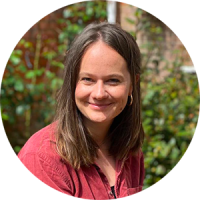
Rosie Mathers
University College London
UK
Rosie Mathers is a PhD Candidate in Biosocial Medical Anthropology at UCL. Her doctorate uses mixed methods to explore the relationship between contemporary neoliberal working practices and chronic disease prevalence in women. Rosie has a longstanding interest in the biosocial and has previously worked as a Wellcome Trust Funded Research Assistant studying participants’ experiences of multigenerational birth cohorts (ALSPAC). She is particularly interested in applying social science methodologies to effect community-based change, tying into her previous work in the third sector supporting at-risk children and families and those with long term health difficulties in the UK and abroad. She is an active supporter of Extinction Rebellion and has a recent book chapter with Routledge on the ‘Anthropology of Climate Change Denial’.

Anne McMunn
University College London
UK
I am Professor of Social Epidemiology and Head of the Research Department of Epidemiology & Public Health at UCL, as well as Deputy Director for both the ESRC International Centre for Lifecourse Studies in Society & Health and the ESRC-BBSRC Soc-B Centre for Doctoral Training is Biosocial Research. My research investigates work characteristics (broadly defined from a gender perspective), gender divisions of labour, and social and family relationships and their associations with health and wellbeing over the life course. My work uses data from the UK’s longitudinal population data investments: the British birth cohort studies, Understanding Society (the UK Household Longitudinal Study), and the England Longitudinal Study of Ageing (ELSA). Much of this work focuses on the social-biological interface in thinking about how aspects of the social environment ‘get under the skin’ to influence biology.
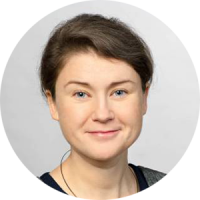
Ruth Müller
Munich Center for Technology in Society, Technical University of Munich, Germany
Ruth Müller is Associate Professor of Science and Technology Policy and codirector of the Munich Center for Technology in Society at the Technical University of Munich. Her work explores the nexus of science, technology, society, and policy, focusing particularly on how institutional norms and values shape and interact with scientific knowledge production practices, on emergent knowledge cultures in the life sciences and in biomedicine, and on the circulation and interpretation of life science knowledge and biotechnologies in society and policy.

Tatiane Muniz
University College London
UK
Tatiane Muniz is a Postdoctoral Research Fellow in the Department of Anthropology at University College London. She is working as a part of a team under PI Sahra Gibbon on the Biosocial Lives of Birth Cohorts Project funded by the Wellcome Trust. She has a PhD Social Anthropology from Federal University of Rio Grande do Sul (UFRGS). Her work has focused on analyzing how the category of race is materialized into technical and bureaucratic practices linked to health, such as genetic research, biomedical practices, racial targeted health public policies. Her research interests lies in race, health and technology; racism and racial bias in health intervention technologies; race and Populational Medical Genetics, race and health inequalities dialoguing with approaches of Black Feminist Health Science Studies and STS studies.
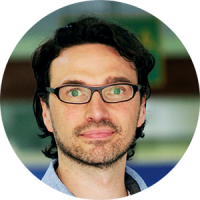
Joseph Murray
Human Development and Violent Research Centre, Federal University of Pelotas, Brazil
Joseph Murray is director of the Human Development and Violence Research Centre (DOVE) and professor at the Postgraduate Programme in Epidemiology, at the Federal University of Pelotas in Brazil. He previously worked and trained at the Institute of Criminology, and Department of Psychiatry at the University of Cambridge. His research focuses on life-course determinants and prevention of conduct problems and violence. His main projects are embedded in four birth cohort studies following 20,000 families and children in Brazil. He received the Manuel Lopez-Rey prize, and the Nigel Walker prize in criminology from the University of Cambridge, and the Distinguished New Scholar Award from the American Society of Criminology Division of Corrections and Sentencing. He has held fellowships with the British Academy, Darwin College Cambridge, and the Wellcome Trust, and currently holds an Investigator Award with the Wellcome Trust, and a Highly Productive Researcher Award (Pesquisador de Produtividade 2) with CNPq, Brazil.

Madeleine Murtagh
University of Glasgow
UK
Madeleine Murtagh took up her post as Professor of Sociology and Bioethics in PEALS in 2017. She began her academic career in Australia, studying and teaching sociology, anthropology, public health and bioethics, before moving to the UK in 2000. Her earlier research examined how people interact with and make decisions about using new health treatments and technologies, and later expanded to consider practices of (open) data science in health (particularly in longitudinal cohort studies and biobanks) and health data ethics. Madeleine conducts social studies of sociotechnical and normative practices in health research data sharing and governance as well as developing new forms of governance which centrally involve public, patients and research participants in ethical, policy and governance decision-making. She established and chairs the METADAC data and samples access infrastructure for nine UK longitudinal studies. Madeleine has an abiding interest in the epistemology and ethics of data science and the implications of data science understandings and practices for epistemic injustice. Her work is carried out in the context of transdisciplinary and intersectoral research collaborations, often in interventionist ethnographic studies.
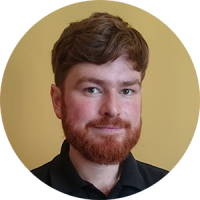
Michael Penkler
University of Applied Sciences Wiener Neustad, Austria
Dr Michael Penkler is a senior lecturer and researcher at the University of Applied Sciences Wiener Neustadt. Michael is a scholar in the field of Science and Technology Studies, whose work focuses on how biomedical knowledge and innovations are produced and how they are taken up in healthcare and health policy. His current ethnographic research project investigates how metabolic diseases are re-articulated in a life course perspective in research on the developmental origins of health and disase.

Michelle Pentecost
King’s College London, UK
University of Witwatersrand, South Africa
Dr Michelle Pentecost is a Lecturer in the Department of Global Health & Social Medicine and Director of the BA in Global Health and Social Medicine. A physician-anthropologist by training, her research and publication record reflects her work and interest across disciplines including clinical medicine, anthropology, science and technology studies, urban studies and global health. Michelle holds a degree in medicine from the University of Cape Town and has a decade of work experience as a clinician in South Africa. She defended her doctorate in Anthropology at the University of Oxford in 2017, specialising in the anthropology of postgenomics and global health. She is a founding member of the Health Professions Special Interest Group of the Medical and Health Humanities Africa Network. She is especially interested in the contemporary roles of the physician (and the physician-anthropologist) across the clinical, academic and public sectors, and the opportunities and challenges that accompany them.

Barbara Prainsack
University of Vienna, Austria
King’s College London, UK
Barbara Prainsack is a Professor at the Department of Political Science at the University of Vienna, and at the Department of Global Health & Social Medicine at King’s College London. At the University Vienna she directs the Centre for the Study of Contemporary Solidarity (CeSCoS). Her work explores the social, regulatory and ethical dimensions of biomedicine and bioscience, with current projects focusing on personalised and “precision” medicine, on citizen participation in science and medicine, and the role of solidarity in medicine and healthcare. Her latest books include: Personalized Medicine: Empowered Patients in the 21st Century? (NYU University Press, 2017) and Solidarity in Biomedicine and Beyond (with Alena Buyx, Cambridge University Press, 2017). Barbara’s activities in providing policy advise include her membership of the Austrian National Bioethics Committee, and of the European Group on Ethics in Science and New Technologies advising the European Commission.

Martyn Pickersgill
University of Edinburgh
UK
Martyn Pickersgill is Professor of the Sociology of Science and Medicine at the University of Edinburgh. He is Co-Director of Research in Edinburgh Medical School’s Usher Institute, and Associate Director of the Wellcome Trust-supported Centre for Biomedicine, Self and Society. Martyn’s research on the social dimensions of neuroscience, psychiatry, and psychology has been funded by the AHRC, ESRC, British Academy, Leverhulme Trust and Wellcome Trust. He is also a Co-I of the MRC Generation Malawi cohort study. Martyn is increasingly interested in how, and to what extent, insights from medical sociology and the social studies of science can inform and shape (mental) health research.

Ana Isabel Ribeiro
Instituto de Saúde Pública da Universidade do Porto (ISPUP), Portugal
Ana Isabel Ribeiro (MPH, PhD) is an epidemiologist and health geographer. She is an Integrated PhD Researcher at the Public Health Institute of the University of Porto. Since 2019, she has been a leader and founder of the Lab Health and Territory where she directs a research program focused on Urban and Planetary Health.
As Principle Investigator, she has led projects on urban and environmental health and has been involved in various European projects.
Ana has authored over 120 scientific papers, reports, and communications, totalling more than 6500 citations.
Ana also holds the position of Invited Assistant Professor at the Faculty of Medicine (University of Porto), being responsible for the curricular units of Demography, Advanced Methods of Epidemiology, and Geographical Information Systems.

Elizabeth F.S. Roberts
University of Michigan
USA
Elizabeth F.S. Roberts is an associate professor of anthropology at the University of Michigan, who investigates scientific and public health knowledge production and its embodied effects in Latin America and the United States. She currently collaborates with engineers and environmental health scientists in the United States and Mexico as part of two ongoing team-based projects in Mexico City that she directs: “Mexican Exposures: A Bioethnographic Approach to Health and Inequality” and Neighborhood Environments as Socio-Techno-bio Systems: Water Quality, Public Trust, and Health in Mexico City” (NESTSMX). In these projects, she and her team trace the looping social, economic, biological, and technical processes that shape everyday life, health, and inequality in working class neighborhoods. One of the key aims of Professor Roberts’ current work is the development of bioethnography, a method that combines social and life sciences approaches in order to make better knowledge about health and inequality. Dr. Roberts is also the director of the Mexico’s Ethnographic Coding Lab where she trains undergraduates in qualitative coding methods using materials from her two multi-disciplinary collaborative projects in Mexico City. Dr. Roberts’ earlier research focused on assisted reproduction in the United States and Ecuador, reproductive governance in Latin America, and transnational medical migrations. She is the author of the book God’s Laboratory: Assisted Reproduction in the Andes (U.C. California Press 2012) and is currently finishing a book manuscript on addiction called Vital Dependencies: A Bioethnography of Addiction in Mexico City.

Sophia Rossmann
Munich Center for Technology in Society, Technical University of Munich, Germany
Sophia Rossmann is a PhD candidate at the Munich Center for Technology in Society, Technical University Munich. She is a trained sociologist working in the field of Science and Technology Studies. Her research interest centres upon environmental epigenetics and how this biomedical approach is adopted and adapted in the field of environmental toxicology. Currently, Sophia focuses on how epigenetic research on toxicants reconfigures the notion of toxicity as processual and relational. In particular, she is interested in how the placenta has emerged as a new epistemic object in the field allowing to make changes in the epistemological and ontological status of toxicity visible.

Georgia Samaras
Munich Center for Technology in Society, Technical University of Munich, Germany
Georgia Samaras (M.A.) is a postdoctoral researcher at the Munich Center for Technology in Society at the Technical University of Munich. Her disciplinary background is in social anthropology with a focus on Science and Technology Studies. Her research addresses the politics of mental health, the epistemology of the life sciences and human-environment relations. Currently, Georgia’s research focusses on how environmental epigenetic knowledge is mobilised and produced in psychiatric research on affective disorders. In particular, she is interested in the molecularisation of trauma and the ontological shift of notions of environment that figure in environmental epigenetics.

Susana Silva
Instituto de Saúde Pública da Universidade do Porto (ISPUP), Portugal
Susana Silva, PhD in Sociology, is the chair of the Department of Health and Society at the Institute of Public Health of the University of Porto. Her research interests include people-centred and integrated care, with a focus on the societal and ethical challenges emerging from the uses of reproductive and genetic technologies and on its implications for contemporary modes of governance of research, health regulation and clinical practices. She is also interested on social determinants of health, carrying out research with the longitudinal birth cohort study in Porto, ‘Geração 21’. In 2017 she was awarded a Development Grant from the FCT Investigator Programme, a researcher-centred, highly competitive scheme, aimed at providing support for the most talented and creative researchers. Her current multi- and mixed-methods research engages sociological and epidemiological perspectives, and the ethics in public health to foster safe, ethical and innovative health technologies and to reduce health inequalities.

José Pedro Silva
Instituto de Saúde Pública da Universidade do Porto (ISPUP), Portugal
José Pedro Silva holds a PhD in Sociology. He is a researcher at Epidemiological Research Unit hosted at the Institute of Public Health of the University of Porto, where he investigates how gentrification impacts urban health. He is also interested in other urban health topics, and has a long interest on qualitative methods and in their applications for health research.

Silvia Stringhini
Geneva University Hospitals, Switzerland University of Lausanne, Switzerland
Dr. Silvia Stringhini is Head of the Unit of Population Epidemiology in the Geneva University Hospitals and Senior Lecturer and Privat Docent at the University Centre for general Medicine and Public Health of the University of Lausanne. She is the PI of the Bus Santé study and in the scientific board of the Colaus and SKIPOGH Swiss studies. She holds a PhD in Epidemiology and Public Health, a Master in Global Health and a Master in International Economics. Her main research areas are: social inequalities in chronic diseases and ageing, the role of health behaviours in the genesis of social inequalities in health, and the biological consequences of social inequalities, the role of environmental factors in social inequalities in health. She has been working on data from several cohorts from different countries, including the UK, France and Switzerland. She is the principal investigator of several research grants from the Swiss National Science Foundation and the University of Lausanne, and she is a co-investigator and work package leader of the EU Horizon 2020 LIFEPATH project. Over the academic year 2018/2019, she was visiting professor at the Dalla Lana School of Public Health, University of Toronto, in the team of Prof. Arjumand Siddiqi.
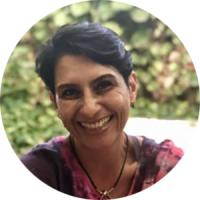
Martha María (Mara) Téllez-Rojo
National Institute of Public Health
Mexico
Martha M Téllez-Rojo is Senior Researcher at the National Centre for Nutrition and Health Research at the National Institute of Public Health in Mexico. She received her Ph.D. in Epidemiology from the National Institute of Public Health (INSP) in Mexico (2003) after a Masters in Statistics at the National Autonomous University of Mexico (1994). She is a senior researcher (ICM-F) at the Center for Nutrition and Health Research at the National Institute of Public Health, Mexico (INSP) with more than 170 papers published in high impact scientific journals. Her main focus of research is the study of the long term effects of the co-exposure of environmental toxicants, social stressors and nutritional conditions during gestation and infancy. From 2004-2014, Dr. Téllez-Rojo headed the Statistical Division at INSP. During that time, she was also very active designing, conducting and analyzing several projects on program evaluation of social interventions, as well as directing several national surveys on health-related topics. Much of Dr. Téllez-Rojo’s recent work is focus on impacting health policy of lead exposure in Mexico.
Since 2002, Dr. Téllez-Rojo has been the principal investigator in Mexico for ELEMENT (Early Live Exposure in Mexico to Environmental Toxicants project) an ongoing birth cohort that began in 1994 which focuses on the developmental effects of lead exposure and other toxicants on the life course. Along with Drs. Robert and Rosalind Wright and Andrea Baccarelli, Dr. Téllez-Rojo is also a principal investigator for PROGRESS (Program Research in Obesity, Growth, Environment and Social Stressors) a birth cohort study that began recruitment in 2007. In the last few years, along with Drs. Elizabeth Roberts (anthropologist) and Brisa Sánchez (statistician) Dr. Téllez-Rojo has worked extensively to develop a bioethnographic approach to ask and answer biosocial questions with the ELEMENT cohort.

Nicolas Timpson
University of Bristol
UK
Following an undergraduate degree in Human Sciences, a masters degree in Biological Anthropology and as a molecular genetics lab researcher at the University of Oxford, Nic’s PhD work in Bristol on Mendelian randomization represented an important fusion between applied epidemiology and human genetics. At the end of his PhD, Nic was seconded as a post doctoral researcher to the Wellcome Trust Centre for Human Genetics, where he became involved in the first wave of genomewide association studies (GWAS) through the Wellcome Trust Case Control Consortium (type 2 diabetes (T2D) analysis team) and the initiation of a collection of collaborative consortia which continue to operate today. Nic is currently a Wellcome Trust Investigatory (dissecting the routes between altered body composition/BMI and health outcomes), is the PI of the Avon Longitudinal Study of Parents and Children and has work package/programme leadership roles in the MRC Integrative Epidemiology Unit, the CRUK Integrative Cancer Epidemiology Programme and the NIHR Bristol Biomedical Research Centre.

Carola Tize
University College London
UK
Carola Tize is a Postdoctoral Research Fellow in the department of Anthropology at University College London. She is part of the Wellcome Trust Funded Biosocial Lives of Birth Cohort Project led by Sahra Gibbon. Within the multinational project her focus resides in the ethnographic investigations of a prospective birth cohort study in the Netherlands. Her PhD research (University of Amsterdam), centred on how the children of migrants in marginalized settings in Berlin, Germany, navigated socio-political forces and how their tactics and strategies impacted the reiteration and resistance of social vulnerabilities across the generations. Her research interests lie in the biopsychosocial effects of social inequalities, as well as how post migration stressors impact well-being.
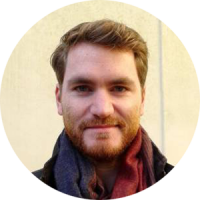
William Viney
Imperial College
UK
William Viney is Research Associate in the Department of Anthropology at Goldsmiths, University of London, and Honorary Research Associate in the Patient Experience Research Centre, Imperial College London. He works on the project ‘People Like You’: Contemporary Figures of Personalisation, investigating practices associated with personalised healthcare and research. He is a participant in a longitudinal bioresource and was a study-facing member of METADAC, a data and samples access infrastructure for nine UK longitudinal studies.

